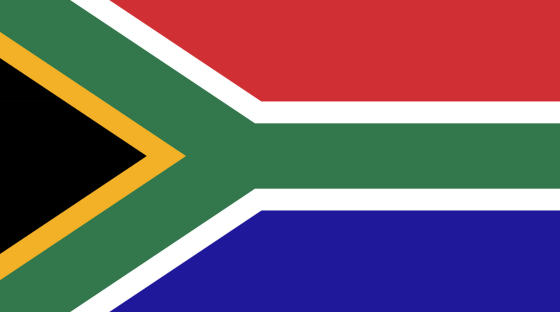South Africa

Overview
South Africa is a relative newcomer on the outsourcing scene with tech centers in Cape Town and Johannesburg. Advantages for Western clients include alignment in culture, language and time zone, and there’s development talent to be found here at attractive rates if you know where to look.
On April 27, 1994, after centuries of white rule, Black South Africans voted in general elections for the first time. Nelson Mandela, held as a political prisoner for 27 years, was elected president. This also marked the end of apartheid which was adopted in 1948 to formalize racist practices based on notions of white supremacy, segregation and a class system based on skin color.
Since the abolition of apartheid, people of all races have the vote and are free and equal under the law. Black South Africans make up 81% of the 60 million population and the country has since been democratically governed by the African National Congress party which emerged from the liberation movement. The ANC’s popularity is waning and a new era of coalition governments is emerging.
It is the most industrialized and technologically advanced economy in Africa and second wealthiest but has large disparities in wealth, with the black community disproportionately affected by poverty. Crime rates are high and it is accorded a low safety rating: ranked 127th of 163 countries by the 2024 Global Peace Index.
The Accelerance Global Network is the most curated list of high-quality global teams ever assembled.
86
Developers
Total number of developers in our certified partner network by country
1
Certified Partner
Total number of certified partners in our global network by country.
15hrs
Time Travel (From NY)
Average flight time from NY to the major cities in the country.
84
Partner Innovation capability
The score reflects investment in STEM progrms and IT funding by country.
87
Partner Skill Level
Level of workforce skills and quality of education, including factors such as digital literacy, interpersonal skills, etc.
86
Partner Global Competitiveness
National productivity based on 12 core pillars, including government policy, infrastructure, economic stability, etc.
High
Software Outsourcing Readiness
Overall rating, based on the maturity of the tech sector, socio-political conditions, and on-the-ground research by Accelerance.

Talent Pool & Education
Software engineering is taught at tertiary education level. Combined with private education companies, the number of IT graduates is steadily growing to meet the demands of the country’s digital roll out. One example is WeThinkCode, a software development academy that has the mission of helping transform the country from a consumer to a creator of tech. A not-for-profit, it has trained more than 1000 software developers since 2018 and, assisted by IBM SkillsBuild, aims to train 100,000 coders in the next decade.
While demand for IT professionals remains high, the sector has slowed in recent times with surveys indicating securing jobs has become more difficult, particularly for junior tech workers. Roles for software developers in 2024 reportedly declined 26% year on year, in part due to an increasing talent pool. Strong labor supply and tougher economic conditions have combined to slow salary growth in the sector.
Language
South Africa has 12 official languages. For centuries, the official languages were European: Dutch, English and Afrikaans. In 1996, South Africa’s new constitution gave official protection to all of the country’s major languages. English is the fourth most-common first language and is predominant in government and media.
.png?width=600&height=375&name=Untitled%20design%20(44).png)
Economic Outlook
The country's economy is the most industrialized and technologically advanced in Africa. A mining powerhouse, it was once the world’s leading supplier of gold and is among the biggest producers of the likes of chrome, manganese, platinum and vanadium.
A big challenge for the country is ensuring reliability of power supply. Electricity shortages have forced many businesses to rely on costly diesel generators and have been a handbrake on growth for several years. Infrastructure such as water, IT, and delivery of health and education services have also been impacted. Although the country is responding, load shedding is expected to continue for at least two more years.
The economy has recovered to pre-pandemic levels but is impeded by structural issues including surety of power supply and logistics bottlenecks. GDP growth fell to 0.6% in 2023, from 1.9% in 2022, reflecting domestic constraints and slowing global demand. The unemployment rate remains stubbornly high, at 32.9% of the workforce in early 2024, according to Stats South Africa.
Political Conditions
South Africa is a parliamentary republic in which, unusually, the president is both head of state and head of government. The president is elected by the National Assembly (the 400-member lower house) and can serve a maximum of two five-year terms.
At the elections in May 2024, the ANC lost its majority for the first time since 1994 when it came to power after the abolition of apartheid, gaining 40% of votes compared with 58% in 2019. Its declining support reflects public frustration over its poor record on delivering basic services and tackling unemployment, poverty and corruption.
After weeks of tense negotiations, a coalition government was formed with the ANC holding 20 of 32 cabinet posts, while the pro-market Democratic Alliance (which won 22% of votes) has six. Six other portfolios are shared amongst smaller parties. Cyril Ramaphosa, a former head of a mine workers’ union and a lead negotiator in talks to end apartheid, was elected for his second term as president. Ramaphosa announced the coalition as "the government of national unity” and said it was “a testament to our democracy”.
Key areas of contention will be the ANC's national healthcare policy and its black economic empowerment programme, both opposed by the Democratic Alliance, which says health reforms could be hugely expensive, and fuel corruption.
Learn more about our customer stories.
Looking for a customer story in a specific technology or industry? Discover compelling customer narratives within a specific technology or industry that resonate with your unique software development needs.


.png?width=300&name=Copy%20of%20WEBSITE%20Stop%20Chasing%20Low%20Hourly%20Rates%20Unlock%20the%20True%20Value%20of%20Offshore%20Development%20(450%20x%20253%20px).png)



